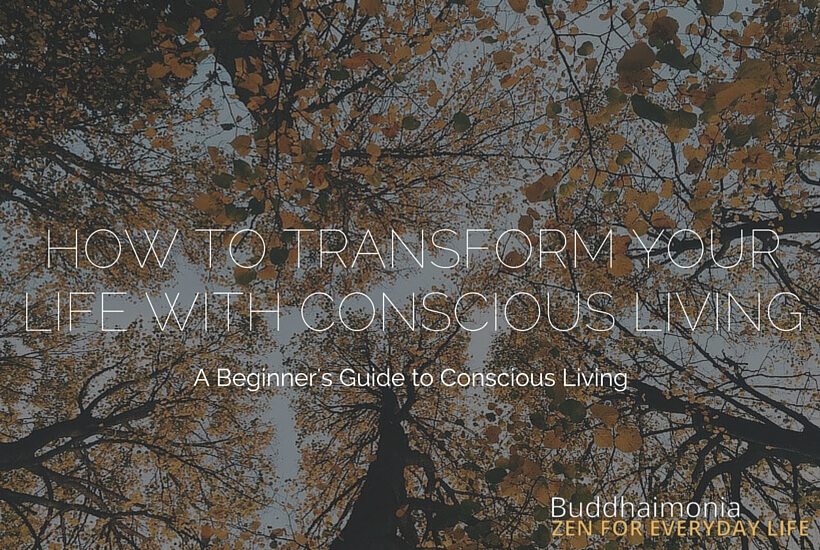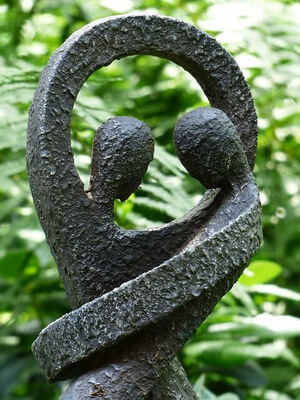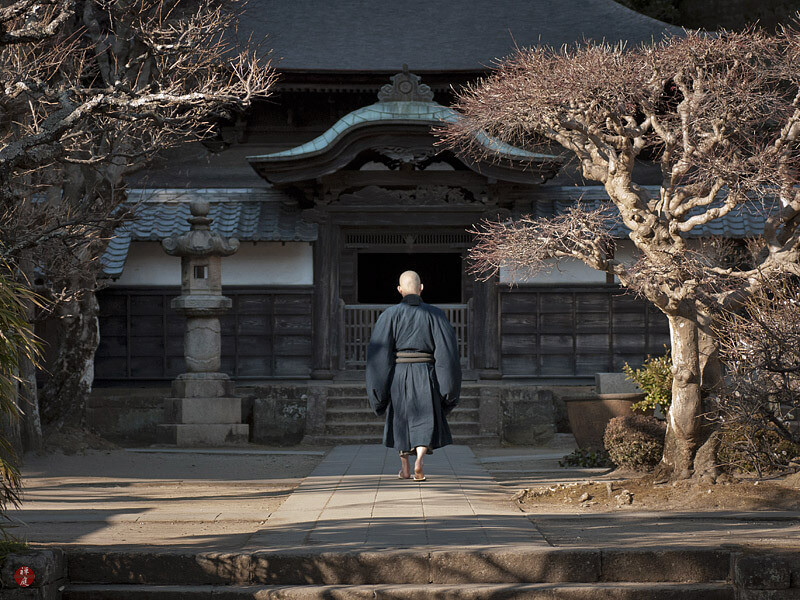More than anything else, my focus for this year is to live a more mindful life.
Ultimately, mindful living is a simple task: do more things with mindfulness. There's nothing more to it. But, just because something is simple doesn't mean that it's easy. It's anything but that.
I talk about this from time to time, but to live even a little more mindfully creates a significant difference in the quality of your everyday life. If you can to get to a point where you're living even 5% of your life mindfully, you'll likely see a complete transformation of your daily life from stressed, anxious, and discontent to calm, peaceful, and happy.
But even that 5% can be very difficult to achieve, especially considering the adverse conditions of the modern world which mostly come in the form of myriad distractions to our mindfulness practice and general effort to live less mindlessly and more awake to ourselves in each moment.
There are many intangibles, and one or two tangible factors, which I've found to be essential to the overall practice of mindful living.
Mindful living comes with a laundry list of significant benefits. But, really, when it gets down to it, it's all about being happier and more at peace.
And that's what mindfulness allows us to do, to wake up to our lives and live intentionally, taking the reigns and living consciously as opposed to being swayed this way and that by our conditioning and habitual patterns. These patterns run very deep, and they affect everything that we do, so mindfulness practice is essential to realizing true peace and happiness.
I hope these 10 essential keys to mindful living help you live a more mindful life, filled with greater peace, happiness, and the skillfulness to navigate life's challenges.
10 Essential Keys for Mindful Living
1. Prioritize mindful living
This is one of those points I mention time and time again because it really is that important.
What does it mean to prioritize your practice of mindful living? In a nutshell, this refers to treating it with a certain level of importance.
Oftentimes, we make a decision to do something, such as workout regularly, and end up falling off of our goal because we didn't treat it with the same level of importance as the other things in our life.
The reality is, each of the activities and responsibilities which make up our life exist on a scale. Depending on the importance of the activity, it may rest higher or lower on this scale.
When we add something new to this scale, unless we consciously make the effort to do the opposite, it gets placed at the bottom and is therefore much more likely to get pushed aside for other things.
By prioritizing your practice of mindful living, you're saying, "This is something important to me. I value my well-being, and this is an important key in my effort to take care of myself and live a happier and more peaceful life. This is as important as anything else."
You can learn more about important intangible factors such as this, and a step-by-step in-depth mindful living program, by checking out my book Zen for Everyday Life.
2. Harness motivation
Motivation is one of those things which can either help or hurt you, and it all comes down to whether or not you've been able to identify what your true motivation is in the first place.
Why do you practice? Why do you push your practice aside? Gaining clarity about this allows you to change the script and replace it with something more compelling towards your practice and away from those things which are less beneficial. Oftentimes, just being really clear about why exactly you practice and how those other things are less beneficial is enough to truly harness motivation towards supporting your mindfulness practice.
Oftentimes, just being really clear about why exactly you practice and how those other things are less beneficial is enough to truly harness motivation towards supporting your mindfulness practice.
By identifying your motivation to practice, as well as your motivation to brush off practice and put it aside for other things, you can construct your daily life in a way that promotes your practice and demotes other activities which are less beneficial. For this reason, understanding your motivation can be an important tool in making mindful living more habitual.
Interestingly enough, it's mindfulness which allows us to bring clarity to these motivating factors, so if you know how to practice mindfulness you already have the key to "activating" this asset to your practice so to speak.
3. Have patience
This is one of those points that's definitely easier said than done, but simply becoming aware of it is often very helpful.
The reality is that most of us approach our mindfulness practice with the expectation to gain or feel something by some certain amount of time, and when we don't arrive there in the amount of time we originally expected, we end up discouraging ourselves from the very practice which is supposed to help us.
Meditation and mindfulness practice move along their own timetables. And sure, the more dedicated our practice the more we can affect this, but we still have no way of making accurate expectations.
No matter how hard we practice, we still never know how long something is going to take. We don't know when something or other will happen, so we must be patient and allow it to unfold as it will.
This can be difficult at first, but ultimately it helps us quite a bit because it begins to train us in the art of letting go and living naturally, allowing things to unfold as they will. And this will be a beneficial skill for the rest of our lives.
4. Open yourself fully to the practice of making friends with yourself
Meditation and mindfulness practice, in many ways, is the practice of making friends with yourself. By this, I mean learning about yourself intimately and training yourself to become your friend as opposed to your critical enemy, something almost all of us can relate to being at least at some point in our lives.
Most of us are ruled by an internal dialogue that is mean and hurtful and very damaging to our self-esteem and mental well-being. This internal dialogue is one of the primary things which our practice of mindful living allows us to work through, slowly identifying the footprint of the critical ego and allowing us to fully accept and heal these wounds with compassion and loving-kindness one-by-one.
By opening yourself to the process, and practice, of making friends with yourself, you're proclaiming that you're ready to face every part of yourself, even the deepest and darkest parts. It won't be easy either way, but by identifying ahead of time that this will be a part of your mindful living practice
It won't be easy either way, but by identifying ahead of time that this will be a part of your mindful living practice and accepting that fact you open the gateway to a much more easeful path through the process of making friends with yourself and finding peace with this internal dialogue.
5. Consume mindfully
As important as anything else is creating an environment conducive to mindful living (and peace and happiness), and one of the major ways to do that is through mindful consumption.
Mindful consumption is the practice of reviewing your life and identifying which are harmful and which are helpful factors, then rearranging your life in a way that promotes your well-being. This includes everything from the people you choose to surround yourself with to your habits with electronic devices such as your smartphone and T.V.
If you expect to create a strong mindful living practice without working through some of these areas which may be continually harming your well-being, you'll just detract from your practice and keep hurting yourself in the long run.
It's important to create an environment that is conducive to not just a more mindful life but greater peace and happiness in general. After all, isn't that the point? If something in our life doesn't promote our physical or mental well-being or that of our loved ones, it probably needs to go.
Ultimately, you'll be the judge of this, but by making this a priority, you'll put yourself in a position to live an overall healthier and more mindful life.
Learn more about mindful consumption and creating an environment conducive to greater peace and happiness here: ZfEL Episode #3.
6. Practice easeful discipline
Discipline is as important in a daily mindfulness and meditation practice as in anything else in life, but it's important to go about it the right way.
Don't approach your mindfulness practice from the perspective of an athlete or someone trying to push themselves to their limit. Mindfulness practice, and navigating the challenges of everyday life in general, needs to be done in an easeful and joyful way.
Your practice should, typically, be very enjoyable and feel very easy. This isn't a hard or fast rule, though. Sometimes, meditation and mindfulness practice can be quite difficult.
Both require us to face the darkest parts of ourselves, and as a result, sometimes our meditation and mindfulness practice can be quite difficult. But, in general, your practice should be enjoyable and refreshing.
Depending on the challenges you bring to your practice, this may be difficult for you. But know that this is more a state of mind to bring to your practice and something to remind yourself of from time to time more than anything else, so it can be developed over time.
7. Cultivate loving-kindness
As I just mentioned, mindfulness practice can be difficult. Both to make a way of life, a more habitual activity, and simply the practice in itself at times when we're forced to face uncomfortable parts of ourselves.
For this reason, the quality of loving-kindness is absolutely essential. With loving-kindness, we change from being overly critical and harmful to ourselves to being kind and compassionate when we experience these dark patches. It's this kindness and compassion which transforms everything and they're essential parts of a successful meditation practice of any kind, including mindfulness.
It's this kindness and compassion which transforms everything and they're essential parts of a successful meditation practice of any kind, including mindfulness.
You can learn more about the role loving-kindness plays in mindfulness practice by listening to ZfEL episode #16: How to Heal the Wounds in Our Heart with Mindfulness and Loving-Kindness.
8. Find a mindful community
A community is one of those things which you can get away without having if you really need to, but which without you'll be greatly hindering your ability to stay consistent, create a thriving practice, and even just to stick to the practice in the first place.
A community of like-minded individuals, even one you only get to meet once every 2-4 weeks, is priceless and will not only help you stick to your practice but will help you develop your practice further in less time (that's not the point, but still worth mentioning).
Without a community of other mindful practitioners, you're alone in your practice and have no one which you can communicate with regarding your challenges.
Even simply for this reason it's highly valuable, but there's also an accountability factor which makes a community a powerful tool in helping develop your mindfulness practice into a daily habit (or, in other words, a way of life).
There are many ways to go about finding a community, including simply searching Google for mindfulness meditation classes in your area, but here are a few links to certain practice groups which you may find helpful:
- Wake Up – Get Involved!
- The Mindfulness Bell – Sangha Directory
- Shambhala Directory
- Plumline: Plum Village Google+ Digital Groups
9. Create a Zen space at home
A Zen space is my fancy term for a dedicated meditation space. This is the one real tangible item on this list, but it's no less important than anything else.
To create a dedicated meditation space in your home, a space which you've decided as being a place for meditation and mindfulness and nothing else, is a sign of having prioritized your practice.
A space such as this encourages your practice because it creates a place you can go to find peace at any time of day (provided you're at home). It's a dedicated place with all potential distractions removed. This encourages your meditation and mindfulness practice on multiple levels.
If you'd like to learn more about creating a Zen space, read How to Create a Zen Space.
And for more information on creating a home meditation practice:
- Read: 5 Tools to Help You Start Your Home Meditation Practice
- Listen: How to Create a Home Meditation Practice
10. Follow the path of least resistance
The path of least resistance is a simple principle which I've used time and time again to help me develop and strengthen both my home meditation practice and my daily practice of mindful living.
The basic idea is this: we naturally do the thing which is easiest to do at any given moment, unless we make an intentional push to act in some other way. Which is difficult, if not impossible, to do consistently.
So what do you do? Are we just destined to push aside our meditation practice for the siren song of the lazy boy and primetime T.V.? Is it always going to be an uphill battle against the habit of mindlessness? Not if you utilize this knowledge.
The path of least resistance has different applications whether we're talking about sitting meditation practice or the overall practice of mindful living, but in all cases the same general idea applies: make it as easy to practice as possible and more difficult to do those other things which distract you from your practice. Or, in other words, encourage an environment conducive to mindfulness and discourage mindless activities.
Learn more about the path of least resistance: 5 Steps to Making Meditation a Daily Habit.
The Complete Moment-to-Moment Guide to Mindful Living
Years ago, the practice of mindfulness changed my life dramatically. I went from being stressed out and disconnected from the world around me to being more at peace and present in my day-to-day life.
Much of this post was adapted from my second book, Zen for Everyday Life, which is the most complete moment-to-moment mindfulness practice guide I've written to date. I provide freely dozens of posts, guides, and podcast episodes here for you which can be used to begin, progress, and further deepen a daily mindfulness practice like what was discussed in this post (which you're welcome to explore). However, Zen for Everyday Life thoughtfully organizes much of it into one place in a clear and simple way for you to implement effectively.
If you're interested in effectively bringing more mindfulness into your daily life to relieve stress, realize greater peace, and become more present in your day-to-day life, then Zen for Everyday Life will guide you.
































